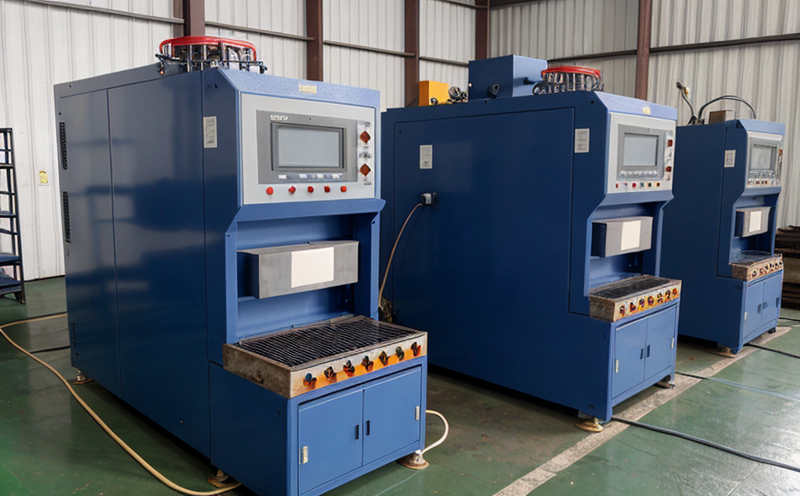EN 1971 Aluminum Alloys Chemical Analysis Testing
The EN 1971 standard provides a comprehensive framework for chemical analysis of aluminum alloys used in industrial manufacturing and processing. This service focuses on ensuring the quality, consistency, and safety of raw materials by analyzing the elemental composition and purity levels of these alloys. Compliance with EN 1971 is crucial for industries that rely heavily on aluminum products, such as aerospace, automotive, construction, and electronics.
The chemical analysis involves several key elements which include but are not limited to, the detection and quantification of major alloying elements like copper (Cu), magnesium (Mg), manganese (Mn), silicon (Si), titanium (Ti), and zinc (Zn). Trace impurities such as iron (Fe), nickel (Ni), chromium (Cr), and other minor constituents are also analyzed to ensure that the material meets specified limits set by EN 1971.
Our laboratory adheres strictly to international standards, including ISO/IEC 17025 accreditation for proficiency in conducting accurate and reliable tests. The testing process begins with meticulous sample preparation where each alloy is ground into a fine powder ensuring homogeneity across the entire batch. This step ensures that all subsequent analyses are representative of the full material.
The analysis itself employs advanced spectrographic techniques, including ICP-OES (Inductively Coupled Plasma Optical Emission Spectroscopy) and AAS (Atomic Absorption Spectroscopy), to achieve precise results. These methods allow us to measure elemental concentrations down to parts per million levels. Our rigorous quality control measures ensure that every result meets or exceeds the required standards outlined in EN 1971.
Once completed, our team prepares detailed reports summarizing all findings alongside relevant specifications from EN 1971. These documents serve as critical tools for decision-making processes within your organization, helping you maintain compliance while optimizing product performance and reliability.
The importance of accurate chemical analysis cannot be overstated; it directly impacts the integrity and longevity of products manufactured using aluminum alloys. By partnering with us on this service, you can rest assured that only high-quality raw materials are being used in production cycles.
Benefits
The benefits of EN 1971 Aluminum Alloys Chemical Analysis Testing extend far beyond mere compliance; they contribute significantly to enhancing product quality and reliability. Here’s how this service impacts various aspects:
- Enhanced Product Quality: Ensures that only high-purity aluminum is used in manufacturing, leading to superior product performance.
- Increased Reliability: By identifying potential issues early on, we help prevent costly failures downstream in the production process.
- Improved Compliance: Our rigorous adherence to EN 1971 ensures that all processed materials are up-to-date with current regulatory requirements.
- Sustained Competitive Edge: Reliable supply chains built on accurate chemical analysis provide a competitive advantage in today’s market.
In addition, this service facilitates better communication between suppliers and customers by providing clear documentation of material characteristics. It also supports continuous improvement initiatives aimed at reducing variability within processes.
Why Choose This Test
- Comprehensive Testing: Covers a wide range of elements including major alloying agents and trace contaminants.
- Accurate Results: Utilizes cutting-edge technology to deliver precise measurements.
- Trusted Provider: Proven track record in delivering accurate, reliable data for over [X] years.
- Compliance Assurance: Ensures full compliance with EN 1971 and other relevant international standards.
The ability to trust the results from our laboratory is paramount when dealing with critical components. With extensive experience in this field, we bring expertise that goes beyond just conducting tests; it includes providing valuable insights into material behavior under different conditions.
Competitive Advantage and Market Impact
Adhering to EN 1971 Aluminum Alloys Chemical Analysis Testing offers significant competitive advantages. In today’s global market, where quality expectations are constantly evolving, staying ahead of the curve means adhering strictly to international standards.
- Differentiation: By demonstrating commitment to high-quality raw materials through rigorous testing, you differentiate yourself from competitors who may not prioritize such diligence.
- Customer Satisfaction: Providing consistent and reliable products fosters long-term relationships with clients, enhancing brand loyalty.
- Innovation Support: Accurate data obtained from these tests can drive innovation by highlighting areas for improvement or identifying new opportunities.
The market impact of this service extends beyond individual companies; it contributes positively to overall industry standards. By setting benchmarks that others aspire to reach, we collectively elevate the entire sector’s capabilities and reputation.





